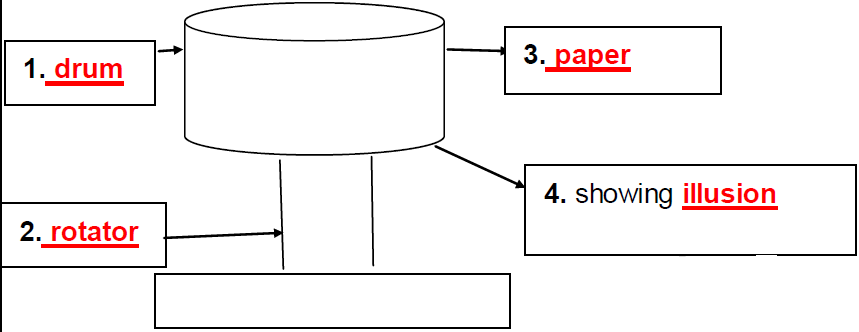
天津

022-5837-8200
雅思考试官方合作伙伴
代码:TS000170
代码:TS000170
欢迎来到环球教育官方网站,来环球教育雅思培训,去全球,名师高徒,高分留学!
来源:环球教育整理
小编:cherry 2452015年7月4日雅思考试笔试已经结束, 环球教育教研中心为大家带来的2015年7月4日雅思阅读机经,希望能对考生们未来的考试有帮助。
| 2015 年 7 月 4 日雅思阅读机经考题回忆 ——来自环球教育教研中心 | |||||||||||||||
| Passage One | 新旧情况 | 题材 | 题目 | 题型 | |||||||||||
| New | 发展史 | The origin of cameras | 填空 4 表格 4 判断 5 | ||||||||||||
| 文章大意 | 照相机的发展史 近似背景文章 The origin of cameras The history of the camera can be traced much further back than the introduction of photography. Cameras evolved from the camera obscura, and continued to change through many generations of photographic technology, including daguerreotypes,calotypes, dry plates, film, and digital cameras. Photographic cameras were a development of the camera obscura, a device possibly dating back to the ancient Chinese and ancient Greeks, which uses a pinholeor lens to project an image of the scene outside upside-down onto a viewing surface. An Arab physicist, Ibn al-Haytham, published his Book of Optics in 1021 AD. He created the first pinhole camera after observing how light traveled through a window shutter. Ibn al-Haytham realized that smaller holes would create sharper images. Ibn al-Haytham is also credited with inventing the first camera obscura. On 24 January 1544 mathematician and instrument maker Reiners Gemma Frisius ofLeuven University used one to watch a solar eclipse, publishing a diagram of his method in De Radio Astronimica et Geometrico in the following year. In 1558 Giovanni Batista della Porta was the first to recommend the method as an aid to drawing. Before the invention of photographic processes there was no way to preserve the images produced by these cameras apart from manually tracing them. The earliest cameras were room-sized, with space for one or more people inside; these gradually evolved into more and more compact models such as that by Niépce's time portable handheld cameras suitable for photography were readily available. The first camera that was small and portable enough to be practical for photography was envisioned by Johann Zahn in 1685, though it would be almost 150 years before such an application was possible. | ||||||||||||||
| 答案 | 
10. F 11. F several of CC(一种电影) still exist today 12. T 13. NG (答案仅供参考) | ||||||||||||||
| Passage Two | 新旧情况 | 题材 | 题目 | 题型 | |||||||||||
| New | 科技 | The treetop Research | 配对(段落包含)5 配对 (人名匹配)5 填空 2 | ||||||||||||
| 阅读原文 | 近似背景文章 What is the TreeTop Barbie project? TreeTop Barbie was designed to inspire youth – especially young girls – to become aware of the field of the forest canopy. She is a real Barbie doll, but wears hand-tailored clothes that are modeled on real field clothes and climbing gear, including a field guide to canopy plants and animals (both Barbie- and human-sized). The TreeTop Barbie package includes the doll and a personal letter from Barbie about forests and their importance to people. What issues does this project address? TreeTop Barbie can serve as a role model to encourage young girls in directions that are alternatives to the mainstream Barbie doll and what she represents in our society. TreeTop Barbie and her accompanying educational materials also provide a link between youth and an exciting part of the natural world in tropical and temperate ecosystems. How can I get a TreeTop Barbie? TreeTop Barbie is distributed by The International Canopy Network (ICAN), a not-for-profit organization dedicated to promoting forest canopy conservation through research and education. Funds generated will support this and other outreach activities. Exploration of forest canopies is no easy task—since researchers can't cross between tree-tops, they have to clamber up trunks, explore, descend, and then climb the next. Or they did, until the advent of the SolVin Bretzel Canopy Raft. A canopy raft is, basically, an inflatable PVC pontoon frame with high -tension netting spread between. They're pre-inflated and lifted into positioned via airship, dirigible, or helicopter. Once in position, the rafts are set down among the tree-tops, allowing researchers unfettered access to the uppermost reaches of the forest ecosystem. Scientists can observe from the raft, rappel from it too—they can even live on its temporary floor for several days at a time. The pretzel shape of the raft in the top image is known as a SolVin Bretzel, created by architect Gilles Ebersolt (yes, like "Pretzel" but in German), a recent design that replaced the previous, octagonal raft shape. Its unique 400m²area offers numerous advantages over its predecessors. It's a more structurally sound platform that maximizes surface area, preventing any outlying section from folding or collapsing. It's also extremely lightweight—meaning it doesn't crush the new growth of the canopy upon which it rests. | ||||||||||||||
| 答案 | 14. E opinion of experts on a certain access method have changed 15. D a description of physical limitation of a certain access 16. F 17. A the details of ecological and environmental of canory 18. B a description of lack of cooperation and research 19. c 20. e 21. a 22. d 23. b 24. asserts 25. ballon (答案仅供参考) | ||||||||||||||
| Passage Three | 新旧情况 | 题材 | 题目 | 题型 | |||||||||||
| New | 书籍 | The Grimme Fairy Tale | 判断 6 单选 3 完成句子 5 | ||||||||||||
| 文章大意 | 近似背景知识介绍 Grimm's Fairy Tales This book contains 209 tales collected by the brothers Grimm. The exact print source is unknown. The etext appears to be based on the translation by Margaret Hunt called Grimm's Household Tales, but it is not identical to her edition. (Some of the translations are slightly different, the arrangement also differs, and the Grimm's scholarly notes are not include d.) The first volume of the first edition was published in 1812, containing 86 stories; the second volume of 70 stories followed in 1815. For the second edition, two volumes were issued in 1819 and a third in 1822, totaling 170 tales. The third edition appeared in 1837; fourth edition, 1840; fifth edition, 1843; sixth edition, 1850; seventh edition, 1857. Stories were added, and also subtracted, from one edition to the next, until the seventh held 211 tales. All editions were extensively illustrated, first by Philipp Grot Johann and, after his death in 1892, by German illustrator Robert Leinweber The first volumes were much criticized because, although they were called "Children's Tales", they were not regarded as suitable for children, both for the scholarly information included and the subject matter.[1] Many changes through the editions – such as turning the wicked mother of the first edition in Snow White and Hansel and Gretel (shown in original Grimm stories as Hänsel and Grethel) to a stepmother, were probably made with an eye to such suitability. They removed sexual references—such as Rapunzel's innocently asking why her dress was getting tight around her belly, and thus naïvely revealing to her stepmother her pregnancy and the prince's visits—but, in many respects, violence, particularly when punishing villains, was increased. In 1825, the Brothers published their Kleine Ausgabe or "small edition", a selection of 50 tales designed for child readers. This children's version went through ten editions between 1825 and 1858. Influence The influence of these books was widespread. W. H. Auden praised the collection, during World War II, as one of the founding works of Western culture. The tales themselves have been put to many uses. Hitler praised them as folkish tales showing children with sound racial instincts seeking racially pure marriage partners, and so strongly that the Allied forces warned against them; for instance, Cinderella with the heroine as racially pure, the stepmother as an alien, and the prince with an unspoiled instinct being able to distinguish. Writers who have written about the Holocaust have combined the tales with their memoirs, as Jane Yolen in her Briar Rose. The work of the Brothers Grimm influenced other collectors, both inspiring them to collect tales and leading them to similarly believe, in a spirit of romantic nationalism, that the fairy tales of a country were particularly representative of it, to the neglect of cross-cultural influence. Among those influenced were the Russian Alexander, the Norwegians, the English Joseph Jacobs, and Jeremiah Curtin, an American who collected Irish tales. There was not always a pleased reaction to their collection. Joseph Jacobs was in part inspired by his complaint that English children did not read English fairy tales;[8] in his own words, "What Perrault began, the Grimms completed". Three individual works of Wilhelm Grimm includeAltdänische Heldenlieder, Balladen und Märchen ('Old Danish Heroic Songs, Ballads, and Folktales') in 1811, Über deutsche Runen ('On German Runes') in 1821, and Die deutsche Heldensage ('The German Heroic Saga') in 1829 | ||||||||||||||
| 部分答案 | 27. N the Grimme brother knew they would gain international fame, the lasting fame would shock the Grimmes 28. NG the Grimmes were inforced to do work of their own secret 29. Y the sales of Fairy Tale in England was higher than in German 30. NG 31. Y some parents still thought the Fiary Tale was not good for theirchildren 32. N the fairy Tale author considered the man who made contribution to the story of Cinderella as the original model 33. A the flowering of children literature level in 1800s 34. A-illustration the change of Fairy Tale in order to match with the modern times (refining & resoftening) 35. C 36. D another contributor of the Fiary Tale in Italy 37. F the reason why some people think the Fiary Tale belongs to German 38. H some violent stories 39. E 40. D (仅供参考) | ||||||||||||||